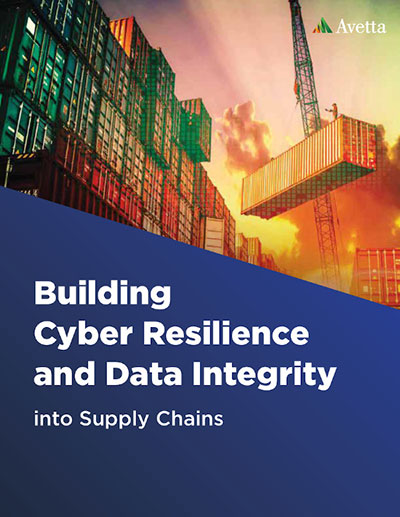Making the Business Case for Supply Chain Sustainability

Sustainability is becoming a primary focus for supply chains across all industries.
Advice from the UN Global Compact
Sustainability has gained increased mindshare in recent years, rising all the way as a top consideration for choosing the next city for the Summer Olympics. In more practical applications, sustainability is also becoming a primary focus for supply chains across all industries.
However, not every organization has embraced sustainable practices, but for those looking to transition, the United Nations Global Compact offers clear direction for adopting sustainability in their supply chains: Make the business case.
Principles and Business Cases
The mission of the UN Global Compact is to create a global movement of sustainable companies who do business responsibly. Guiding them are 10 core principles that fall under the following 4 categories: Human Rights, Labor, Environment, and Anti-Corruption.
Some of the principles include making sure that companies don’t take part in human rights abuses, abolishing child labor, promoting environment responsibility, and more. By following these principles and providing guidance for companies transitioning to sustainable practices, the UN Global Compact believes that businesses can create a better future for the world.
Where does an organization start? While many businesses may have corporate values and a culture that is partial to sustainability, making transitioning a business decision will help build internal buy-in throughout the organization. Therefore, the first step in transitioning is to evaluate the business case for action and view the totality of internal and external requirements.
By doing this, organizations can prioritize issues, identify risks and opportunities, and build the support infrastructure to move forward. While the exact business case will differ by company and industry, the business case will generally contain three categories: Risks, Productivity, and Growth.
Risks of Not Embracing Sustainability
The biggest concern for any company is its ability to do business, and a disruption can occur from environmental, social, or economic incidents. Sustainable business practices can help reduce these risks by minimizing impact on the environment, keeping employees and customers safe, and reducing exposure to lawsuits.
Furthermore, organizations cannot ignore the demands and expectations of customers and investors, who are steering companies toward sustainable supply chains.
From the UN Global Compact:
“Strong management of social and environmental issues helps companies avoid and address adverse impacts to stakeholders, which can in turn help ensure that companies maintain their social license to operate by taking into consideration risks to surrounding communities.”
Sustainable Productivity
A sustainable supply chain is simply better for business. One advantage is that procurement costs can be reduced for energy, water, and natural and synthetic materials. With greater focus on these resources, companies can monitor waste, environmental impact, and worker safety. When employees experience investments into their well-being, they are more likely to be motivated, productive, and efficient.
Furthermore, adopting sustainable practices internally will help organizations understand key processes throughout the supply chain. This helps identify partners who add risk to the supply chain profile and those that reduce it. And, if nothing else, sustainability will naturally help streamline internal processes, reducing steps and lowering costs.
Growing Sustainably
The final advantage of a sustainable supply chain is the inherent preparation for a constantly evolving business landscape. Sustainability-minded companies anticipate and are ready to address new social demands and environmental concerns. As such, sustainability can lead to innovation in product offerings and become a differentiating factor for businesses just as energy efficiency and eco-friendliness have become part of corporate responsibility.
Identifying Suppliers for a Sustainable Supply Chain
Once the business case is made and receives buy-in internally, the organization needs to make decisions about its suppliers. This is a critical next step because business partners may not have transitioned to a sustainable mindset yet and may have gaps in their processes that could lead to a disruption or reputation damage. Services like Avetta can assist with locating and qualifying supply chain partners, giving companies high visibility of suppliers safety records, insurance, financial & legal history, and sustainable business practices.
Once the supply chain partners are identified, then sustainability alignment can begin with mapping, expectation setting, and performance monitoring. But it all starts with internal acceptance. All companies understand that sustainability is the right thing to do, but by making the business case companies will understand that sustainability is also the smart thing to do.
Article Topics
Avetta News & Resources
Compliance Risk: A Significant Impediment to the Modern Supply Chain Protecting Supply Chains Against Economic Uncertainty Supplier Classification: A Differentiator in the Modern Supply Chain Landscape New Cybersecurity Requirements Needed for Supply Chains Building End-to-End Risk Resiliency in Supply Chains Supply Chain 2030: Evolving Challenges, Opportunities and Technological Possibilities Extending ESG Best Practices Into the Supply Chain More AvettaLatest in Supply Chain
Spotlight Startup: Cart.com Walmart and Swisslog Expand Partnership with New Texas Facility Nissan Channels Tesla With Its Latest Manufacturing Process Taking Stock of Today’s Robotics Market and What the Future Holds U.S. Manufacturing Gains Momentum After Another Strong Month Biden Gives Samsung $6.4 Billion For Texas Semiconductor Plants Apple Overtaken as World’s Largest Phone Seller More Supply Chain













